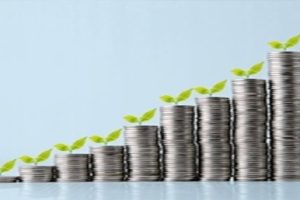
BY MENGESHA AMARE
No one would argue against, I think, if it is said that the subsistence traditional agriculture production methods on which the majority of farmers have depended has to be transformed into the lucrative approach of designated manufacturing and industrialization.
Why developing countries like Ethiopia have, a crucial question indeed, so far failed, and lacked the ability, to transform their economy into the next level of success—Industrialization—has not yet been well dealt with. Needless to state, most developing counties such as ours whose economy highly dependson agriculture have to come up with a well-defined strategy to associate the sector with industry. True, agriculture has a potential to contribute to industrialization through providing rawmaterials, being source of income or government revenue, creating demand for foreignexchange.
Increasing the productivity and the income of the agriculture sector will increase in demand of industrial output and release of resources and raw materials like labor in a bid to allocate to the industry sector. Having the priceless importance of linking agriculture sector with industrialization into account, this writer approached Lemma Onsho, an expert consulting industrial parks.
He said, “Agriculture has been playing and is playing a major role especially for countries which do have great comparative advantagein the sector. We do have historical examples in which agriculture grew relatively strongly prior to theperiod of full-scale industrialization and provided resources for mechanization.”
He further elucidated that agriculture creates strong production linkages and stimulate demandin the development process. It is important for developing countries like Ethiopia to adopt agricultureled and rural development so as to achieve industrialization.
Agriculture can contribute a significant share to the industrialization process thereby fighting against poverty alleviation.Besides, the industrialization process would be of a viable avenue for increasing farmers’ incomedirectly through the adoption of improved techniques which in turn increase agricultural output and thereforetheir revenue. Ethiopia has to draw important lessons from well experienced countries if it is committed to be triumphant over poverty and sluggish way of agricultural operation.
“Most definitely, we can take South Korea’s experience as a goodmodel to draw imperative lesson and to excellently reply to our quests. South Korea is one of the lateindustrialized countries, which has transformed its economy from basket case to power house. Koreawas one of the poorest countries in the 1950’s, obvious. The question here is how Korea couldachieve this within the shortest time possible,” he inquired.
There are a number of means to foster the supplementary and determined stance of the two crucial sectors. Selective intervention in terms of providing appealing environment for industrial actors to work more, fostering trade openness andtechnological transfer, undertaking strong macroeconomic monitor to stabilize the economy, among others arethe fundamental steps to be taken to well employ industrialization.
Yes, he further said that engaging in the international market is the mostimportant factor which has made a big influence to industrialization process. The rapidpace of growth and industrialization of developing countries such as Ethiopia would benefit much out of the untapped resources. Thus, the experience of rapid growth and industrialization in South Korea is a miraculous move to change the entire world if exploited well, he added.
He also said that the Ethiopian export boom has to be made sustained though it is at its infancy. “We have to produce raw materials, process and distribute finished goods using industrialization process as we have all what is required. No doubt, agriculture, apart from being the mainstay of the country’s economy, has a potential to contribute to industrialization via providing rawmaterials and other relevant requirements.”
It is also quite important to note that high agriculture productivity plays a major role in structural transformation as it is of significantly useful in allocatingresource to other non-agricultural sectors and attracting technological transfer.
According to Lemma, a sound and robust policy measure is the essence for economic development and industrialization achievement thereby lifting many out of poverty. Ethiopia has followed Agriculture development led toindustrialization (ADLI) as a leading and overall national economic framework strategy to fight poverty, indeed!
As ADLI policy strongly considersthat small holderfarmers in the agriculture sector can generate wealth and transform the economy to the next level of success, the government has to identify key impediments to implement the policy and provide major actors with all what is required with a view to helping the country conquer poverty.
Undoubtedly, industrialization in Ethiopia has still been very slow interms of structural transformation. Hence, the policy should be more concretized and should address implementationproblems to bear the anticipated goals in time and compatible with today’s vigorous global setting. As to him, industrialization is the evolution of transform from a basic agrarian economy to an industrialized state, and what Ethiopia has now been entertained is this viable avenue.
Alemayehu Asres is another person whom this writer talked to about change and real growth. He is an economist working for a consultancy firm. He said, “Unequivocally, changing first state economy to the next level necessitates commitment, sacrifice, sense of belongingness and well-founded will. Almost all developed countries had paid the cost to get all the advantage of industrializationwhere they are at present. Industrialization is the basis of sustainable economic development, the way to increase production, means to eliminate poverty and making a country a well-to-do, physically powerful and defensive.”
Ethiopia has been taking measures to transform its economy and to increase the growthand share of industry over a decade on the basis of agriculture as source of income, revenueand raw materials for the industry sector. Yes, although taking agriculture as a leading sector and source of livelihood to the majority of the population is common in the country, lack of financial and skill human resource have been notorious bottlenecks in due course of allocating to the industry sector, he added.
Despite many constrains in the agriculture sector as the sector depends on rain and traditionalsubsistence farming, terms of trade and volatility of price of agriculture products inthe international market, the Ethiopian government has also taken agriculture as a leading growth strategy to achieve industrialization, and agriculture has still continued playing a pivotal role to sustaining the nationaleconomy.
As to him, it is well acknowledged that Ethiopia is endowed with large number of working age population and largenumber of small holding potential cultivated land. Besides, the country has been experiencingremarkable economic growth over the years.
As industrialization is replacing basic agrarian primary sector to secondary one, it is difficult to see industrialization and economic development separately nowadays. Not only does economic development deal withvia increasing goods and services but it also contains development of the wellbeing of asociety and sustainable economic growth, he added.
He said, “The countries which have achieved industrialization haveexperiencing the highest level of economic development, and most industrialized countries have showed that they could create huge domesticor external market for their strategic sector at least at the transition time.”
In a nutshell, measures like providingsmallholder farmers with technology andbetter farming practices, improved seeds, fertilizers, irrigation, rural roads, and marketing services need to be well introduced to increase agricultural production, and a rise in agricultural output in turn is expected to stimulateindustrial production by providing food and industrial materials thereby establishing a link between the rural andurban sectors. The negative impacts of industrialization have to be well managed, too
THE ETHIOPIAN HERALD FRIDAY 3 FEBRUARY 2023




